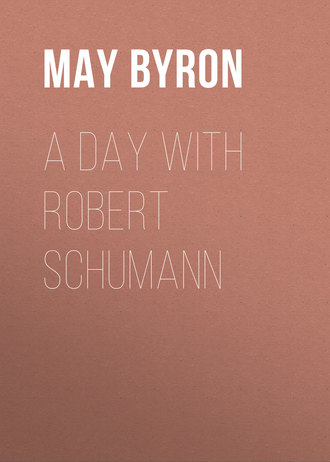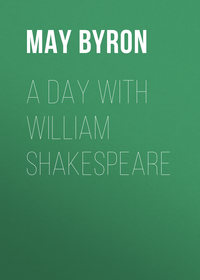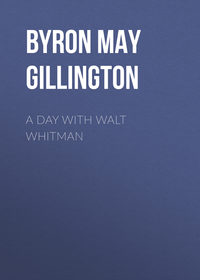 полная версия
полная версияA Day with Robert Schumann
In the afternoon, Schumann, back at home, is occupied with creative work. This, perhaps, is the most congenial part of his day: for, as it has been said of him, he sees life musically, and whatever happens to impress him takes the form of music. Steadily, deliberately, of set purpose, and yet with the authentic fire of divine inspiration infusing his smallest effort, he has conquered, one by one, in every field of creative art. His finest pianoforte works were composed during the wretched years of strain and stress whilst he was waiting to marry Clara, held apart from her by her jealous and inexorable father, until (again like the Brownings) the lovers took matters into their own hands and were married in sudden and in secret. Three of his four great symphonies saw the light in one year, 1841, – an achievement truly colossal. Last year, 1843, he was studying and perfecting himself in chamber music. His life, outwardly so uneventful, has been abnormally prolific in brain-work: and that of no fatal fluency or shallow meretriciousness, but conceived upon the highest possible plane. "The more clearly we examine Schumann's ideas," says Liszt, "the more power and life do we discover in them: and the more we study them, the more are we amazed at the wealth and fertility which had before escaped us." And his own theories of art are bound to evolve themselves thus: – for "Only think," he has written, "what circumstances must be combined to produce the beautiful in all its dignity and splendour. We need, – 1st, lofty deep purposes and ideality in a composition; 2nd, enthusiasm in description; 3rd, masterly execution and harmony of action, closely combined; 4th, innate desire for giving and receiving, a momentarily favourable mood (on both sides, that of listener and performer); 5th, the most fortunate conjunction of the relatives of time, as well as of the more especial question of place and other accessories; 6th, sympathy of impression, feelings and ideas – a reflection of artistic pleasure in the eyes of others."
And these definitions apply in all their detail to the outcome of Schumann's happiest year of all, – the year after his union with Clara, – the time when like a bird he burst into infinite ecstasy of melody, and eclipsed himself with the number, variety and bewildering beauty of his vocal compositions. That perfect balance between words and music, that power of identifying himself with the poet whose words he "sets," which pre-eminently differentiates Schumann from all other musicians, was born of "hopes fulfilled and mutual love." There are no songs which can compare with his, in passionate intensity and depth of emotion. It may be that only the skilled and sympathetic musician can interpret them with full effect: but the least expert auditor can be poignantly affected by them. Especially is this the case with his treatments of Heine, – the one poet par excellence in whom he discovers all he can desire of power, of pathos and of passion. "The lyrics Die Lotos-blume (The Lotus-flower) and Du bist wie eine Blume (Thou art like unto a flower) are among the most perfect things found in the realms of song, in their enchanting truth and delicacy of sentiment"; and "not one of all those subtle touches … which make Heine's poetry what it is, has been lost upon Schumann." Ich grolle nicht (I will not chide) is unapproachable in its white-heat of uttermost despair.
I will not chide, although my heart should break,Though all my hopes have died, lost Love, for thy dear sake — I will not chide.Though thou be bright bedeck'd with diamond-shine,No ray of joy illumines that heart of thine, I know full well!I will not chide, although my heart should break, — I saw it all in dreaming,I saw the night that thro' thy soul is streaming,I saw the snake that on thy heart doth feed,I saw, my love, how sad thou art indeed, — I will not chide!Die Beiden Grenadieren (The Two Grenadiers), with Schumann's favourite Marseillaise introduced in such masterly fashion at the end, remains an unrivalled utterance of manly and patriotic grief.
To France were returning two Grenadiers, In Russia they long did languish,And as they came to the German frontier, They hung down their heads with anguish.'Twas then that they heard the story of woe, That France was forlorn and forsaken,Besieged and defeated, and crushed by the foe, And the Emp'ror, their Emp'ror was taken!* * * * *"My cross of honour and crimson band Lay on my heart right surely;My musket place within my hand, And gird my sword securely:So will I lie there and harken, dumb, — Like sentry when hosts are camping, —Till I hear the roar of the cannon come, And the chargers above are tramping!"Above me shall ride then my Emp'ror so brave, While swords are flashing and clashing, While sabres are fiercely contending, —In that hour of his need I will rise from the grave, The cause of my Emp'ror defending!"And in his song-cycle Frauen-lieben und Leben (Woman's Life and Love) he has evinced "extraordinary depths of penetration into a side of human character which men are generally supposed incapable of understanding – the intensity and endurance of a pure woman's love."… Yet who should know it if he does not?..
Towards evening, various folk drop in by ones and twos, – musical acquaintances, it need hardly be said, for there is no other topic than that of their art which they can discuss with Robert Schumann. The discussion may possibly be on their part only, with a man like this, of whom it is told that one day he went into a friend's house, whistling softly sotto voce, – and, with nothing but a cheery nod, walked to the piano and opened it, – played a few chords, – made a modulation, and returned to the original key, – shut the piano, gave another courteous nod, and – exit, in utter silence! He is, indeed, capable of sitting for hours in the midst of a merry chattering company, completely lost in thought, employed upon the evolution of some musical thought. But when he does speak, his words are all altruistically ardent, full of eager praise and joyful appreciation for the great names of music, whose excellencies he loves to point out. "The great masters, it is to them I go," he avows with the humility of a child, – "to Gluck the simple, to Händel the complicated, and to Bach the most complicated of all." His admiration of "John Sebastian" is boundless. "I always flee to Bach, and he gives me fresh strength and desire for life and work… The profound combinations, the poetry and humour of the new school of music principally emanate from Bach."
Mozart is to him, as to all great artists, a veritable divinity. "Do not put Beethoven," says he, "too soon into the hands of the young: steep and strengthen them in the fresh animation of Mozart… The music of the first act of Figaro I consider the most heavenly that Mozart ever wrote." And with his customary absolute freedom from professional envy, he terms Mendelssohn "the Mozart of the nineteenth century," and will not even sit in the same room with anyone who disparages him. He has upheld with noble enthusiasm the merits of such rising stars as Chopin, Heller, Gade, Sterndale-Bennett, Berlioz, Franz, and Brahms. He has, it may be said, only one bête noir, the blatant and flamboyant Meyerbeer. Regarding Wagner, his opinion is in abeyance. "Wagner is a man of education and spirit … certainly a clever fellow, full of crazy ideas, and audacious to a degree… Yet he cannot write or think of four consecutive lines of beautiful, hardly of good, music." So Schumann has delivered himself at one time; but he is ready to revoke this judgment, and to declare, "I must take back one or two things I said after reading the score of Tannhäuser; it makes quite a different effect on the stage. Much of it impressed me deeply."
When his guests depart, Schumann accompanies them a little way, that he may, according to his invariable custom, spend an hour or so of the evening at Popper's Restaurant. There, should his friend Verhulst be present, he enjoys what is for him a free and animated conversation – otherwise, among the chink of glasses and clank of plates, he remains aloof and meditative.
Evening darkens slowly into the calm spring night, – that Frühlingsnacht which he has set forth in such exquisite music – as he regains his home and rejoins his wife. She is practising softly lest the children awaken, but rises with a smile of joy, and receives her husband as though he had been a year away. Side by side, holding each others' hands, they sit by the window and inhale the sweet April air. A sense of beatitude encompasses them.
"Hast thou done well to-day, Robert?" she enquires.
"Well? Yes – very well: better than I hoped or expected. A soft voice seemed to whisper to me whilst I worked, 'It is not in vain that thou art writing.'… But in such an hour as this, my Clara, I long more deeply to give expression to my holiest thoughts. To apply his powers to sacred music must always be the loftiest aim of an artist. In youth we are all too firmly rooted to earth with its joys and sorrows: but with advancing age, our branches extend higher. And so I hope the time for my efforts in this direction is not far distant."
"It is, then, at present, eluding you – the study of sacred music?"
"It demands a power of treating the chorus – a knowledge of superb ensemble and massive effects to which I have not yet attained." And he heaves a sigh as of one faced with mighty problems. For to this man, "from whom the knowledge of no emotion in the individual heart is withheld, it is a matter of extreme difficulty to give expression to … those feelings which affect the whole of mankind in common."
"For you, who can realize human love so devoutly, there should be no eventual hindrance to the expression of love towards God," says the little dark-eyed woman, pressing his hand with warm devotion.
"You yourself are the concrete expression of love towards God," the composer murmurs, gazing down at her in the twilight – "you and your music together. If I once said I loved you because of your goodness, it is only half true. Everything is so harmoniously combined in your nature, that I cannot think of you apart from your music – and so I love you one with the other." A sudden spasm contracts his face as he speaks – he turns his head wildly to and fro.
"Robert!" she exclaims, "what is the matter? You shuddered – your hand has gone cold and clammy. What ails you?"
"What are those distant wind-instruments?" he asks in awestruck tones. "What are they playing? Don't you hear? Such harmonies are too beautiful for earth…"
Clara strains her ears into the stillness. "There is nothing – nothing audible whatever," she asseverates. "Robert, you are ill – you have overworked your head – "
"I have heard them before … beautiful, beautiful! – Ah! now they are silent!" and he passes his hand over his brow with a bewildered air.
"Come, dearest, you are overwearied – come and sleep sweetly." Schumann permits himself to be led away from the window by his anxious wife: slowly he regains his composure.
"My little treasure!" he whispers, clasping her tenderly, "what should I be without your loving care of me? Clärchen … Schumann … I wonder whether an angel imagined the names together?"
"May that angel guard thee, Robert," says she, "and all that is thine and mine, for ever."
The open piano glistens whitely in the darkness: she closes it as they leave the room.









